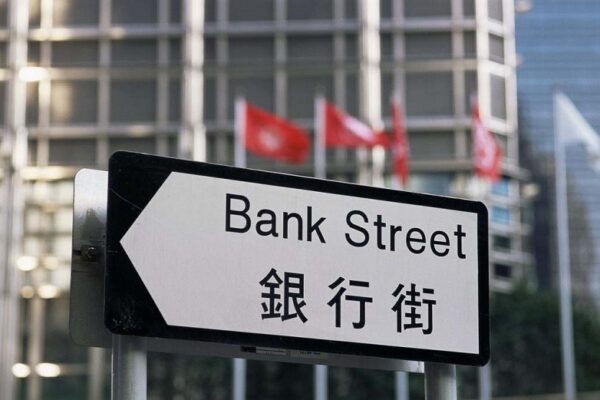Hong Kong and Singapore are important offshore financial centers in the Asian region, and they can be called the two shining pearls of Southeast Asia. On the road of economic development, both of them have also chosen different directions, so that the economic development of both sides has its own characteristics.
For foreign investors setting up offshore companies in Singapore and Hong Kong, both Singapore and Hong Kong are taxed on a territorial basis (only income arising in the territory is taxed, not globally), and this tax regime has greatly attracted foreign investors to set up offshore companies in Singapore and Hong Kong.

Hong Kong vs Singapore, which is the best choice for enterprises to handle offshore companies?
#01
Tax Rate Comparison
▶ Corporate income tax
📍 Hong Kong:A Hong Kong company enjoys a preferential tax rate of 8.25% for its first profit of up to HK$2 million after incorporation; compared to the normal tax rate of 16.5%, the amount of tax exemption enjoyed is HK$165,000. Singapore companies can enjoy three tax incentives, of which the first three years of tax-free profits for new companies is SGD 125,000 dollars.
📍 Singapore:The Singapore Company Partial Tax Exemption Scheme tax-free profit amount is S$102,500; the Corporate Income Tax Refund Scheme annual tax refund is C$15,000. The total tax exemption for the first three years is (125+102,500)*17%+15,000 = S$53,675.
For small businesses or start-ups with relatively low profit margins, Singapore's tax rates are more favorable; for medium and large companies with higher profits, the two regions are comparable in terms of income tax.
▶ Personal Income Tax
📍 Hong Kong Individual Income Tax
Hong Kong's personal income tax rate ranges from 0-17%, while the Hong Kong government has also set different personal allowances. The basic personal allowance is HK$132,000, in addition to that there are married person's allowance, child allowance, dependent parent allowance and single parent family allowance. If only one person in a family works, the tax payable is almost zero.
For example, if a person earns RMB10,000,000,000, he or she will have to pay about RMB105,698 if he or she is a Singapore tax resident, about RMB139,552 if he or she is a Hong Kong tax resident, but the figure will be about RMB268,080 if he or she is a China tax resident.
(Note: this algorithm uses only the basic individual tax rate and does not incorporate the various tax allowances)

📍 Singapore Personal Income Tax
Singapore's personal income tax rate ranges from 0-22%, and there are corresponding deductions for personal income, which are automatically deducted by the Inland Revenue Department (IRD) without the need for individuals to make adjustments.
Basically, anyone who works and has an income qualifies for this deduction, which is 1 TP4T1,000 for those under 55, 1 TP4T3,000 for those 55 to 59, and 1 TP4T4,000 for those 60 and older, in addition to the spousal deduction, the children's deduction, the working mother's deduction, and the parent's deduction, among other things.
No tax relief applies to non-resident individuals. The higher of the 15% rate or the resident individual income tax rate applies to employment income of non-resident individuals; the 20% rate applies to director's fees, consulting fees and other income.
Thus, it seems that Singapore's personal income tax, although the highest bracket hits 22%, is only levied on the portion of the annual income exceeding SGD320,000, so excluding the ultra-high-income group, the overall comparison, Singapore's personal income tax is better.
▶ Tax system and tax types
Commonly known as VAT is not levied in Hong Kong, while Singapore implements a consumption tax of 81 TP3T (rising to 91 TP3T in 2024), which is a broad-based tax, equivalent to VAT, on imports into Singapore (levied by Singapore Customs) and on virtually all goods and services in Singapore.
The fact that Singapore and Hong Kong are taxed on a regional basis (only income generated or sourced in the region is taxed, not globally) makes it very attractive for foreign investors to set up offshore companies in Singapore and Hong Kong.

#02
Registered capital and registered address
Both Singapore and Hong Kong belong to the subscription, when registering a company, both do not need to actually verify the capital and pay the registered capital in full immediately, but it is recommended to deposit it after opening a bank account, so as to avoid the auditor will ask the shareholders to explain the reason for not depositing the registered capital when the company does an audit in the future. Major world currencies can be chosen, e.g. US Dollars, Hong Kong Dollars and New Zealand Dollars.

In terms of registered capital, both places are relatively flexible, it should be noted that the registered capital is related to the risk of the company's shareholders, the newly registered company can not be too high an amount of money, and apply for capital increase when necessary.
📍 factThe registered capital is usually HK$10,000 and no capital verification is required.
📍 newly addedslantedThe minimum registered capital is S$1 with no upper limit. Although there is no strict requirement for paid-up registered capital in Singapore, it is recommended that paid-up capital be completed within 3 months.
In terms of registered address requirements, all require a real and effective business address, mailbox PO BOX can not be used as a registered address.
It is worth noting that the Hong Kong government requires all registered addresses to have an electronic water sign displaying the company name; if not, a fine will be imposed upon detection. Singapore currently does not have this requirement, the requirements are more lenient.

#03
Follow-up maintenance
On follow-up maintenance.factCompanies are required to conduct annual audits and tax returns every year, but Hong Kong companies that have no operations and no bank accounts can file no-business tax returns (i.e. zero return). Hong Kong companies that generate operational behavior are required to conduct account audits and tax returns in accordance with the relevant legal provisions.
SingaporeanAnnual audits are also required, while Singapore companies with no operations can also file zero tax returns. Singapore companies with operational behavior need to do their accounts, but not all Singapore companies need to be audited. An audit is only required if the company has an annual turnover or assets of S$10 million (about RMB 50 million) and more than 50 employees.




